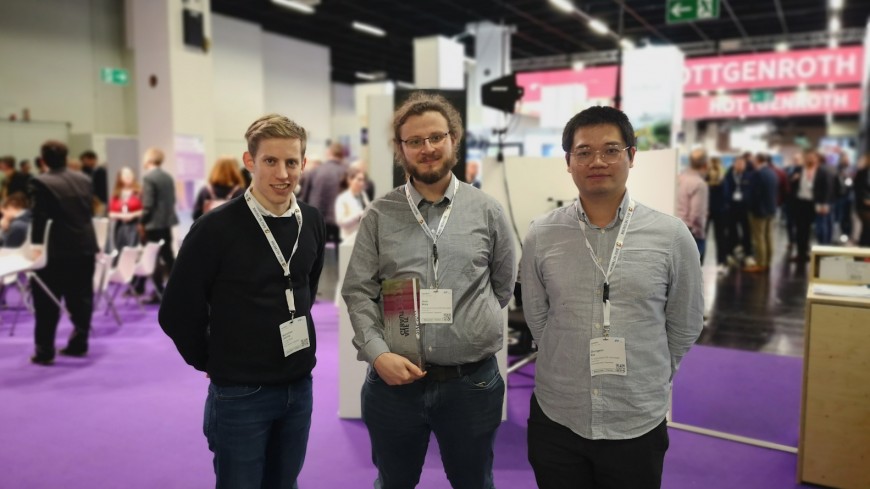Awarded Master Thesis
Third place in the building management category goes to Jens Wala for the conceptual design of a decentralized building life cycle management system
2024/06/22
The high heterogeneity of the software systems used in the construction industry makes it difficult for stakeholders to collaborate over the life cycle of a building. The proposed solution offers an approach to solving this problem with the help of technologies from the manufacturing industry and the Semantic Web.
Jens Wala, M.Sc., research assistant at the Institute of Numerical Methods and Informatics in Civil Engineering, exmined in his Master's thesis how product lifecycle management (PLM) technologies from the manufacturing industry can be applied in the context of building lifecycle management. A major problem in the current Building Information Modeling (BIM) methodology is the lack of interoperability between different data formats and software systems. The Industry Foundation Classes (IFC) standard was developed to improve collaboration, but its current version is of limited use for the utilization phase.
A microservice architecture is proposed to create a decentralized, shared data environment for lifecycle management. This environment should preserve the data sovereignty of the stakeholders and enable the integration of various existing systems. It implements a semantic web-based network layer for this purpose. The specially developed BIBO-OWL ontology, which is based on the data format of the PLM software PROSTEP OpenPDM, is used as the data exchange format.
The system aims to meet the requirements for flexibility, data sovereignty, and interoperability. It enables provider-independent, decentralized data storage and promotes a more open exchange of data between project participants throughout a building's entire life cycle. The work shows that semantic web and manufacturing industry technologies can be successfully transferred to the construction industry to improve process efficiency and reduce vendor lock-in.



